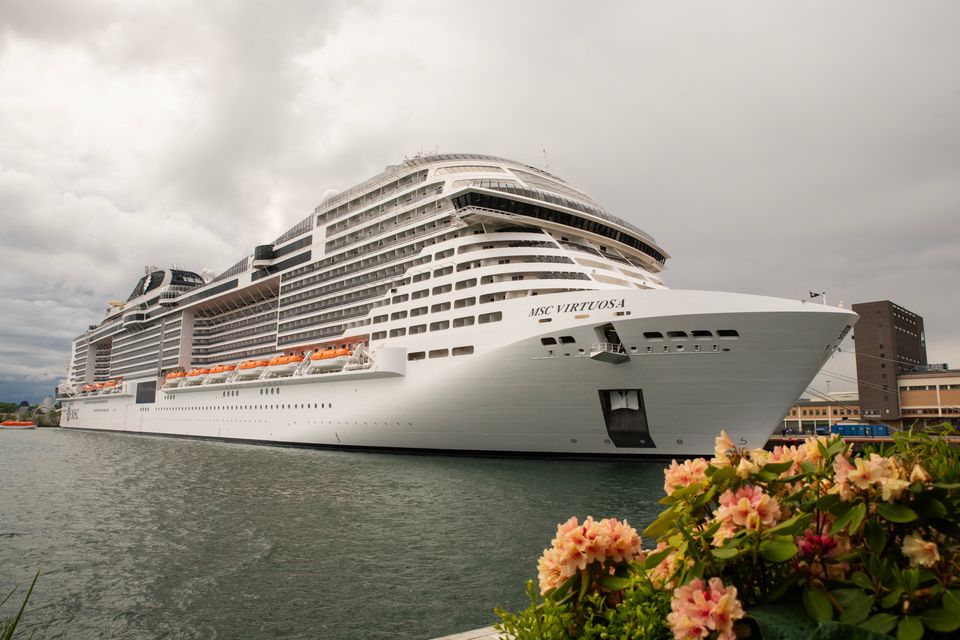Home Clean Fuel Enova pumps $65.6 million into zero-emission ship and tech projects
Enova, a Norwegian government enterprise, has decided to invest NOK 709 million ($65.6 million) to provide financcial support for zero-emission ship and technology projects.

The vessels receiving support vary from fully electric high-speed passenger boats for the aquaculture industry to containerships powered by ammonia and hydrogen. The purpose of the support is to strengthen the use of zero-emission technology at sea.
“The world’s energy systems must become emission-free if we are to succeed in reaching the goals we have set ourselves in the Paris Agreement. For shipping, this requires us to adopt new technologies and sustainable zero-emission fuels. The projects Enova supports make an important contribution to this,” said Nils Kristian Nakstad, CEO of Enova.
“We want a faster phase-in of zero-emission technology in maritime transport. This applies to both technologies for the use of hydrogen-based energy carriers and special innovative electrification concepts for vessels.”
Aas part of the investment, Enova granted Viridis Bulk Carriers financial support of NOK 152 million to help finance the construction of 2 ammonia-powered bulk carriers. Viridis Bulk Carriers expect to place orders for ships around the year-end of 2023, with deliveries starting in 2025.
The company has collaborated with the 8 charterers in the ‘Flexbulk NH3 Ammonia Power‘ consortium project to ensure that cargo capacities and operational capabilities are just as future-proof as the power technology and emissions reductions. Ocean Hyway Cluster has the role of project controller. The vessel will be designed by Kongsberg Maritime.
“The ENOVA grant enables construction of these highly innovative vessels, which we expect will be amongst the very first ships to kickstart the ammonia-powered green shift in shipping,” sad André Risholm, Co-founder and board member at Viridis Bulk Carriers.
Two other projects received support this round, i.e. North Sea Container Line, together with Yara Clean Ammonia, will build a containership powered by ammonia with a battery pack of 250 kWh and the option to connect to shore power.
Enova has earlier invested NOK 64 million (€5.5 million) for shore power projects at Norway’s ports.

Posted: about 1 month ago
The projects will use a bunkering solution for ammonia, developed by Azane Fuel Solutions in collaboration with Yara Clean Ammonia, which has also received Enova support. The bunkering unit will be part of a planned bunkering infrastructure network that will be necessary for shipowners and cargo owners to be able to choose ammonia as fuel.
Furthermore, Viasea Shipping AS received a total of NOK 171.8 million in support to acquire two hydrogen-powered container ships. The ships will use a combination of the hydrogen combustion engine, diesel-electric engine, battery packs and rotor sail.
When completed in 2026, the ships will be used in Viasea’s existing route between Norway and Northern Europe.
While operating on hydrogen and diesel, the ship is expected to emit 76% lower CO2 emissions than a corresponding diesel-powered ship. With 100% hydrogen operation, the ship will operate emission-free, according to the shipowner. In addition, a number of energy efficiency measures will reduce the energy requirement by more than 30% to reduce the total fuel requirement.
Enova also provided NOK 7.3 million in support to Moen Marin, which will build a fully electric high-speed passenger boat for the aquaculture industry. Moen Marin will develop, build and demonstrate an emission-free boat for personnel transport, with Pascal Technologies’ innovative hull solution and fully electric powertrain. Pascal Technologies’ hull solution is based on the air cushion principle.
Compared to a conventional hull, this results in 30-50% less energy consumption at high speeds, enabling the full electrification of smaller, fast-moving vessels.
Carbon capture on board ships
Enova’s funding was also awarded to shipowner Solvang ASA for its carbon capture project. Wärtsilä Exhaust Treatment and Solvang have earlier agreed on a full-scale pilot retrofit installation of a carbon capture and storage (CCS) system on one of Solvang’s ethylene carriers, the 21,000-cbm Clipper Eos.
The project will use technology to capture 70% of the CO2 in the ship’s exhaust gas system. This will demonstrate an entire chain for handling CO2 including liquefaction and storage on board the ship.
The technology will be trialed on board the vessel over two years while it conducts commercial operations. If the pilot project proves successful, Solvang plans to install the technology on five ships that have been ordered for delivery in 2026-2027.
The vessel Clipper Eos has been time chartered by Marubeni Corp., Tokyo since her delivery from the shipyard in 2019.


